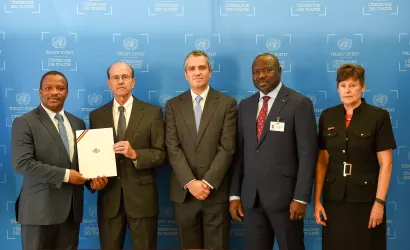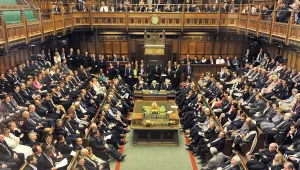Now that President Obama and Secretary of State John Kerry have reached an interim nuclear agreement with Iran, they need to pivot quickly to win over a deeply skeptical Congress and worried Middle East allies.
These extraordinarily tough, prolonged, and complex negotiations with Iran are a major test for American diplomacy. It is positive that we are talking to Tehran seriously for the first time in 35 years. But we are still far from a deal to prevent Iran from becoming a nuclear weapons power. Kerry should set a high bar for a final agreement by the June 30 deadline. Iran needs a nuclear deal more than the United States. And Obama must demonstrate unusually strong presidential leadership to win the support of four key groups here at home and in the Middle East. Otherwise he won’t have the necessary political support to make a final deal.
Win the battle on Capitol Hill: Republicans will ask tough questions and may try to block the agreement despite the fact it does not require Senate ratification. A Senate vote of disapproval or a move to prevent Obama from lifting some of the sanctions on Iran would be a crippling setback. Obama needs to summon his inner Lyndon Baines Johnson and lead an aggressive, personal campaign to sustain Democratic support and persuade very skeptical Republicans. Throughout his time in office, Obama has rarely deployed all his considerable presidential powers to win a battle with Congress as LBJ did so emphatically with the Civil Rights Act of 1964. Iran is Obama’s top foreign policy priority. Can he change course late in his presidency to do what Capitol Hill insiders believe is essential — work the Iran issue personally, emphatically, and incessantly to keep Congress in check?
Make up with Bibi: Obama has legitimate reasons to be bitter about his famously difficult relationship with Israeli Prime Minister Benjamin Netanyahu. A cardinal rule of diplomacy is that friends can disagree, but not in public. Netanyahu has crossed that line once too often in his determination to defeat Obama’s Iran policy in Congress. But this is no time for personal recriminations. Obama needs to end the war of words with Netanyahu and reset relations with Israel to heal the most serious public disagreement between Washington and Jerusalem since the 1956 Suez Crisis. Together, they have to show Iran there will be no daylight between the two strongest military powers in the region — Israel and the United States.
Circle the wagons with Saudi Arabia, Egypt, Jordan, and the Gulf states: Long the most loyal American partners in the Middle East, these countries worry about an Obama team that they fear may normalize relations with Iran at their expense following the nuclear deal. In the Arab world, personal ties among leaders are essential. Obama needs to make a persuasive case to Arab leaders that the United States will shield them from the dramatic expansion of Iranian power in the heart of the Sunni world.
Hold the “permanent five” together: Obama will also need the active support of Britain, France, Russia, China and non-permanent Security Council member Germany. They have worked with us to hold Iran’s feet to the fire on the nuclear challenge. They must continue to pressure Iran to honor the agreement and threaten renewed sanctions should it not do so. If this critical coalition splinters, Iran will be the beneficiary.
With Putin on the march in Europe, a turbulent Middle East in crisis, and China ascendant in Asia, Iran presents the one compelling global challenge where Obama has a chance of a major breakthrough. If he can use the powers of the presidency to convince the American public and Congress of the merits of his Iran policy, he may yet make it his most significant foreign policy achievement. But if he fails to lead the process himself, as presidents must do at such critical moments, Iran could end up as his greatest disappointment.
Burns, Nicholas. “How Obama can win on Iran.” The Boston Globe, April 3, 2015





